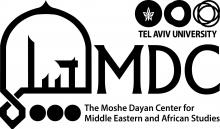Abstract
This article seeks to analyse the rise of Kurdistan in Iraq within the context of a panoramic picture of Iraq’s history by contrasting two schools of thought regarding this country’s failed system. One school of thought puts the blame on incompetent Iraqi rulers but mainly on the British colonialists who with their misdeeds, mismanagement and selfish interests brought Iraq to its present situation of a failed state. The other school of thought argues that Iraq’s problems are structural, resulting from the fact that Iraq was an artificial creation; that Iraqi nationalism never struck roots in Iraqi soil; and that primordial loyalties have never disappeared so that in times of crisis they came to the fore. Indeed, there may be a middle ground between the two schools, suggesting that the combination of the unique nature of Iraq and the mismanagement by outside forces joined together to bring about the fatal outcome. My argument is that from the very inception of the Iraqi state there were two competing national movements, Iraqi and Kurdish, that could not coexist except by the central government’s use of force. Once the latter weakened, the Kurdish national project could flourish and vice versa.

Man walks past map of historic Kurdistan. Illustrative. Photo credit: Jan Sefti, Flickr. Available via CC by-SA 2.0.








